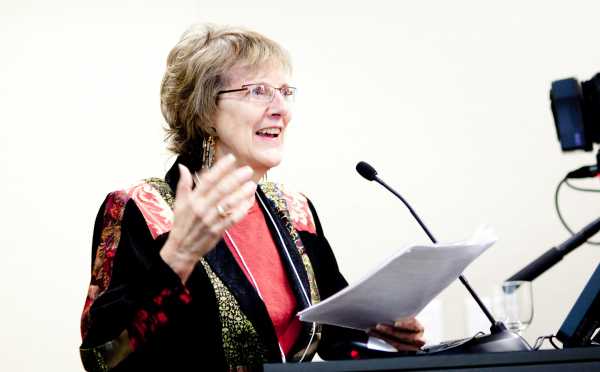
Professor Ellis offers a graduate seminar that engages students to cultivate the ability to think with and about testimonies of loss, trauma, and disruption, within the dialectic of intimacy and distance. The course requires students to listen to stories of trauma and relate them to their lives and experiences. This is done by examining the rhetorical and social aspects of the story as told; analyzing the cultural, structural, and other sociological patterns in trauma stories and testimonies; and connecting the stories and experiences to historical and political contexts.
Professor Ellis begins the course by having students write an autobiography about their own experiences of personal loss and trauma. They are then introduced to a study of the Holocaust through historical films, a brief history, a guided tour of the Florida Holocaust Museum, and chronological and collective historical accounts of testimonies written and analyzed by scholars. This historical grounding provides the context for the next part of the course, which requires students to engage intimately and emotionally with stories written and told by survivors, such as Charlotte Delbo, Viktor Frankl, Primo Levi, Hal Marienthal, Johanna Reiss, and Elie Wiesel. Students then watch interviews of survivors from the VHA, examine and critique other interviews conducted with local survivors and then present these stories to the class. Afterward, these same local survivors attend the class to tell their stories in person.
Professor Ellis’ main project in the class requires students to work in closely supervised teams to conduct interviews of local survivors. These interviews are recorded and made available to the public by the University of South Florida Libraries Holocaust and Genocide Studies Center. Each team participates in every aspect of conducting oral histories, from interviewing, transcribing, and editing the transcripts. When the interviews are completed, the teams write stories about the survivors and reflect on the interviewing and transcribing process. Professor Ellis then guides them to reflect on their own loss and trauma experiences by returning to their personal loss autobiographies they were asked to write during the first week of class. This provides cultural analyses about the interlocking of society and individual experience, and personal analysis about the ways survivor testimonies in this class affect their framing and understanding of their lives when coping with trauma. The course comes full circle from students’ experiences to historical context, to survivors’ stories, and back to students’ experiences.
Professor Ellis says, “the testimonies from the VHA are an important and useful resource in this class. Listening to these testimonies prepares students for meeting and
listening to survivors and helps them anticipate issues that arise in their interviews. In response to the VHA testimonies, students describe and react to survivors’ experiences before, during, and after the Holocaust.” Students respond to the interview protocols they observe in the VHA by examining their effectiveness, the role of the interviewer, and how relationality and emotionality play out in the interaction.
Reflecting on her experience as the course instructor, Professor Ellis notes that “involving students in doing videotaped interviews of survivors is a serious, complex, and challenging undertaking. The technology requirements were equally challenging. Students conducting interviews had to be selected carefully and supervised closely. Working in teams reduced the number of interviewers to three students, while other team members provided support services.” In addition to the preparatory reading, watching and analyzing taped interviews, meeting and hearing survivors’ stories, students who did interviews were asked to observe an actual interview being done before doing their own. Along with the emotional intensity of witnessing traumatic stories and the interpersonal difficulties of working to ensure that survivors were not traumatized further by these interventions, interviewing was time- and energy-intensive for students, as was transcribing the interviews. The students who conducted the interviews for this class continue to interview survivors. Their commitment to the project and the relationships they have developed with survivors, along with survivors’ receptiveness to the students, were inspirational and rewarding. Steven Schoen, a PhD student in the program, led his undergraduate videoproduction class in producing a documentary of this class, which was shown on public TV. “Having this project occur in and about this course provided a reflexive look at interviewing and documentary filmmaking, as the students and their experiences in the class became the objects of scrutiny.”